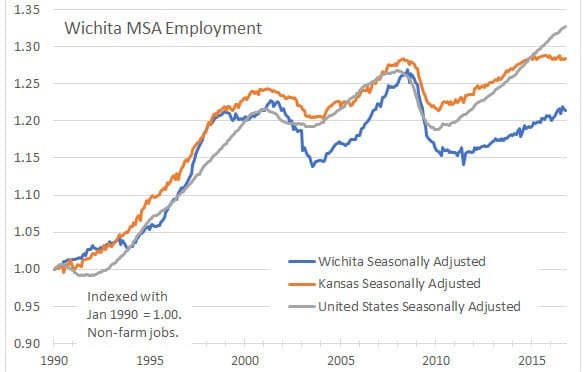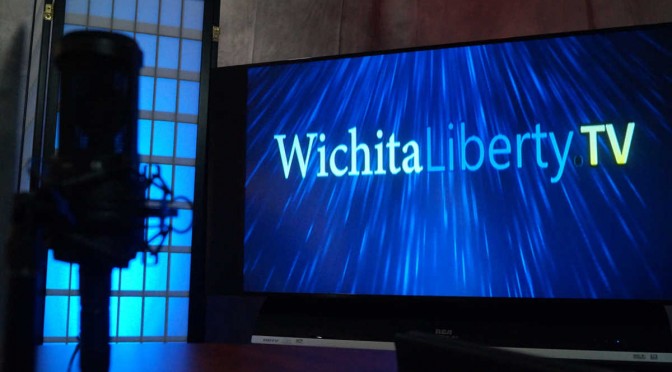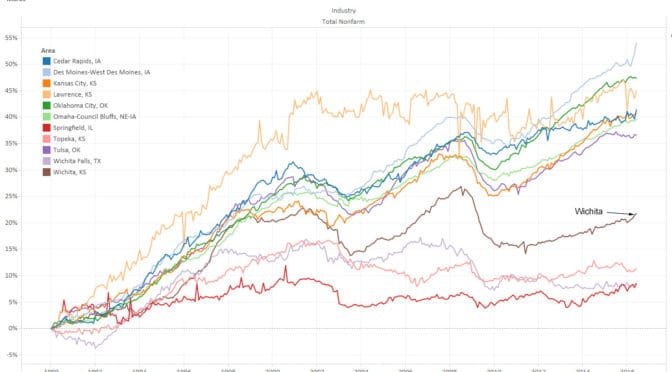Tag: Economic development
-

Won’t anyone develop in downtown Wichita without incentives?
Action the Wichita City Council will consider next week makes one wonder: If downtown Wichita is so great, why does the city have to give away so much?
-

Year in Review: 2016
Here are highlights from Voice for Liberty for 2016. Was it a good year for the principles of individual liberty, limited government, economic freedom, and free markets in Wichita and Kansas?
-

The Wichita economy, according to Milken Institute
The performance of the Wichita-area economy, compared to other large cities, is on a downward trend.
-

Economic development incentives at the margin
The evaluation of economic development incentives in Wichita and Kansas requires thinking at the margin, not the entirety.
-

CID and other incentives approved in downtown Wichita
The Wichita City Council approves economic development incentives, but citizens should not be proud of the discussion and deliberation.
-

WichitaLiberty.TV: A variety of topics, with some good news, but a lot of bad news
Wichita’s economic development, Sedgwick County spending, editorials ignoring facts, your house numbers, Kansas governors, taxpayer-funded political campaigns, and the nature of economic competition.
-

CID and other incentives proposed in downtown Wichita
A proposal for a community improvement district in downtown Wichita includes a public hearing, but much information the public needs is missing.
-

Wichita Business Journal editorial missed the news on the Wichita economy
A Wichita business newspaper’s editorial ignores the history of our local economy. Even the history that it reported in its own pages.
-

Wichita Metro Chamber of Commerce on the campaign trail
We want to believe that The Wichita Metro Chamber of Commerce and its PAC are a force for good. Why does the PAC need to be deceptive and untruthful?